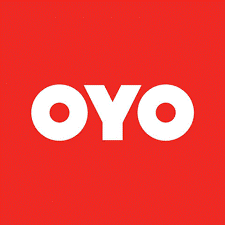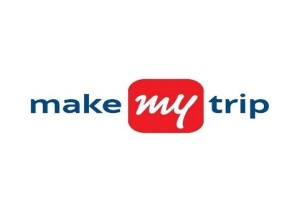CCI directs another probe into MMT and OYO on allegations by Treebo Hotels
The Competition Commission of India (“CCI/Commission”), vide order dated 24.02.2020, has passed another order under Section 26(1) of the Competition Act, 2002 (“the Act”) directing investigation by the Director General (“DG”) after being prima facie convinced that (i) the vertical arrangement between MakeMyTrip India Pvt. Ltd (“MMT”) and Oravel Stays Pvt. Ltd (“OYO”) leads to Appreciable Adverse Effect on Competition and (ii) MMT has abused its dominant position in the market for online intermediation services for booking of hotels in India.
Pertinently, this is the second order passed by the CCI in four months directing investigation into MMT and OYO. The first order dated 28.10.2019 was passed in Case No. 14 of 2019 on 28.10.2019 on an information filed by the Federation of Hotels & Restaurants Association of India (FHRAI).
Background
The information before the CCI was filed by Rubtub Solutions Pvt. Ltd (“Treebo”) which is engaged in the business of providing franchising services to budget hotels in India. It also provides service to independent budget hotels under the “Hotel Superhero’ scheme wherein Treebo only provides services such as hotel management technology services, listing on its platforms and other online travel aggregators, credit facilities, support and quality control of staff and hotel management services without providing its brand name.
Treebo, besides listing partner hotels on its own platform, used to list its budget hotels on other platforms such as MMT, booking.com, Yatra, Expedia etc. MMT (after acquiring Go-Ibibo in 2016), offered to make significant investments in Treebo in exchange for Treebo listing its hotels exclusively on MMT’s platform. It was alleged by Treebo that this proposal of investment turned into threats that if Treebo didn’t agree with MMT’s proposal it will be removed from MMT’s platform. Treebo also brought on record certain e-mail correspondence between MMT and Treebo to reveal the pressure exerted on it to accede to the demands of MMT. It was further alleged that since Treebo did not agree with the proposal of MMT, all Treebo properties were removed from MMT’s platform in March 2017.
The information also revealed that MMT decided to list Treebo back on its platform subject to Treebo entering into ‘Exclusivity agreement’ and ‘Chain agreement’ with MMT. Treebo alleged that the said agreements contained certain anti-competitive clauses wherein: (i) MMT demanded that Treebo maintains price parity with regard to prices charged by it on MMT and other OTAs; (ii) Treebo was not permitted to list its Category A hotels on the platform of MMT’s two competitors i.e. Booking.com and Paytm 72 hours prior check in and similar restriction was placed with respect to Category B hotels 30 days prior to check in.
It was further alleged that even these agreements were unilaterally terminated by MMT due to MMT’s subsequent agreement with OYO wherein MMT agreed to remove OYO’s competitors from its platforms. Further, it was alleged that even properties partnered with Treebo including those under its Superhero scheme were banned from listing on MMT’s platform. Treebo also placed on record a screenshot of an e-mail sent by MMT to one of the hotels under superhero scheme wherein the listing was refused since it was listed on Treebo’s platform.
Treebo, by placing reliance on a news report published on 13.03.2019, also provided that in March 2019, MMT and OYO renewed their agreement for a further period of 5 years with specific provision to exclude Treebo and Fab Hotels from listing on MMT.
CCI prima facie Analysis
The Commission noted that Treebo, one of the direct aggrieved parties of the agreement between OYO and MMT, has put on record evidence in the form of telephonic transcript (to remove OYO’s competitors) and termination letter of agreement with Treebo which was issued after MMT entered agreement with OYO. The CCI noted that the issue has already been addressed in the previous order dated 28.10.2019 in the FHRAI Case directing investigation wherein the CCI had observed that the restrictive arrangement between OYO and MMT may lead to refusal to deal which may have AAEC.
With respect to the price parity restriction (Clause 2.3 of Chain Agreement), CCI observed that across-platforms parity agreements may result in removal of the incentives for platforms to compete on the commission they charge on hoteliers, may inflate the commissions and the final prices paid by consumers and may also prevent entry of new low cost platforms. CCI had passed the earlier directions for investigations on the same grounds and considering that the issue is identical to the allegation, CCI did not undertake any further assessment.
As per the exclusivity condition (Clause 2.1 of the Exclusivity Agreement), wherein Treebo was restricted from listing its properties on Booking.com and Paytm for a period of 72 hours and 30 days prior to check in for hotels situated in Category A and Category B cities respectively, the CCI observed that the restriction prima facie appears unfair and exploitative for the Treebo partner hotels as it denies them an opportunity to gain access to those platforms, especially Booking.Com which appears to be the closest competitor of MMT. CCI also observed that such restrictions also seems to be exclusionary as two Online Travel Aggregators (OTA) were excluded from listing the Treebo Chain of hotels and thus potentially leading to denial of market access with regard to those hotels branded by Treebo. CCI acknowledged that this restriction presently does not apply on Treebo partner hotels pursuant to the termination of the agreement between Treebo and MMT, however, the CCI was of the view that this fact may not be relevant to relieve MMT of its liability if it is found to be in contravention of the provisions of the Act.
Accordingly, CCI has clubbed the present case with Case No. 14 of 2019 under investigation and directed the Director General to submit a consolidated investigation report.
Comment: This is the second order directing investigation against Make My Trip (MMT) and OYO the two major OTA platforms in India for listing of hotels and budget hotels respectively, on grounds of exclusivity and “parity” issues . The orders mark the beginning of antitrust inquiries into the MFN clauses in general and parity clauses in particular , which was till now , not noticed in India . The issues of wide vs narrow parity in hotels listings cases have by and large been resolved in European and other matured jurisdictions and it will be interesting to watch the outcome of the present inquiries in these cases . One more significant shift noticed is the toughening of CCI stance in defining the relevant market rather too narrowly , confining it to the market of OTAs instead of market for hotel bookings or even market for online bookings of hotels , which is in complete reversal to its previous stand in earlier cases , when it use to define the market as market for hotel bookings and found that OTAs are just another (small) players in the large market.










